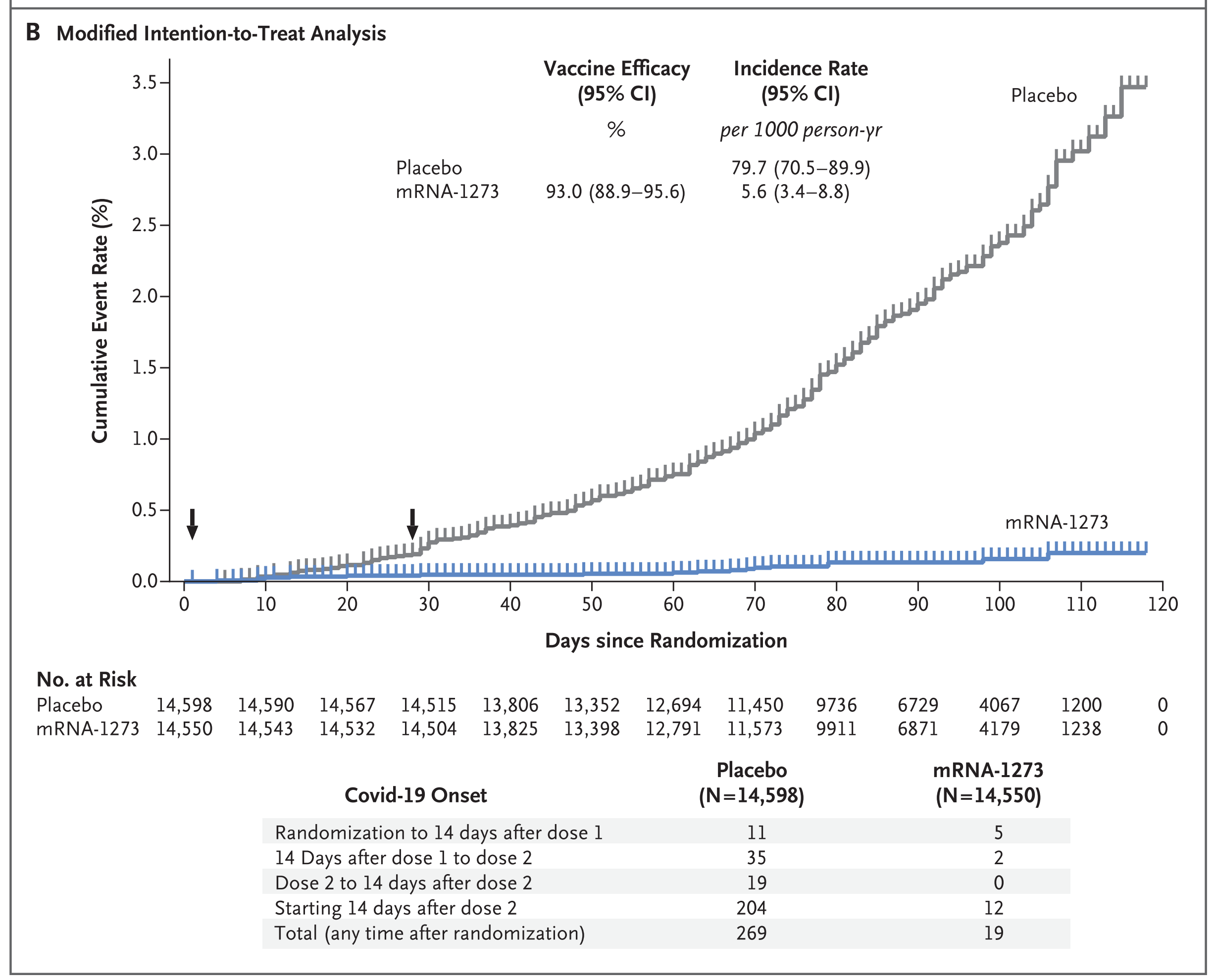How should I behave ≥14 days after my first mRNA vaccine dose but before my second dose?
post by dsj · 2021-04-08T06:24:28.213Z · LW · GW · 3 commentsThis is a question post.
Contents
3 comments
I am due to be vaccinated against Covid today. Let us suppose that I receive either the Pfizer/BioNTech (BNT162b2) or Moderna (mRNA-1273) vaccine, and subsequently receive my second dose on schedule (21 days later for BNT162b2; 28 days later for mRNA-1273).
Data from phase III trials for these vaccines suggest substantial efficacy at preventing disease starting at 14 days after the first dose:


While confidence intervals are wider due to the relatively small number of observation days, the BNT162b2 vaccine appears to be 92.6% effective in the corresponding 14- to 20-day window, while the mRNA-1273 vaccine appears to be 94.2% effective in the corresponding 14- to 27-day window. This is comparable to their efficacies even ≥14 days after the second dose.
Data for severe disease is also promising, though much sparser and hence more difficult to interpret.
On the other hand, at least one large observational study estimates only 57% efficacy against symptomatic Covid-19 for BNT162b2 in the 14- to 20-day window, as compared to 94% ≥7 days after the second dose. Other measures (documented infection, hospitalization, and severe disease) are similarly worse during that window.
In my case, I’m planning on air travel within the continental United States relatively soon, and while I could postpone it several additional weeks if necessary to protect myself and other travelers from severe disease, I prefer not to if there’s no advantage. So, which studies provide the most important evidence about the relative risk of “returning to society” 14 days after my first dose, as opposed to waiting until 7 or even 14 days after my second dose?
Answers
3 comments
Comments sorted by top scores.
comment by arunto · 2021-04-08T10:24:32.711Z · LW(p) · GW(p)
Maybe figure 1 of this article: Antibody Responses in Seropositive Persons after a Single Dose of SARS-CoV-2 mRNA Vaccine could be helpful. I think relevant are the blue dots (for persons seronegative before the first vaccine).
Since the antibody reaction is on a log scale I would be more confident after 28 days than after 14 days based on that graph. But the n for the different time ranges (days after vaccine) are much too small to be sure, of course (and I am not a medical expert).
comment by Shmi (shminux) · 2021-04-08T06:41:11.400Z · LW(p) · GW(p)
One reference point: in Canada the guidance is that the first dose provides enough protection to delay the second dose up to 4 month.
Replies from: dsj↑ comment by dsj · 2021-04-08T06:49:58.481Z · LW(p) · GW(p)
I'm aware that there's an ongoing debate about the tradeoffs of prioritizing first doses for as-yet unvaccinated individuals vs. getting people "fully" vaccinated more quickly.
However, one could very well argue for prioritizing first doses over second doses, even if there were a substantial increase in efficacy provided by that second dose, simply because the marginal improvement of going from 0 doses to 1 is much higher than going from 1 dose to 2.
What I'm asking about is whether there's really any evidence for this increase at all, or whether it's just as safe to begin my air travel 14 days after my first dose as 14 days after my second.